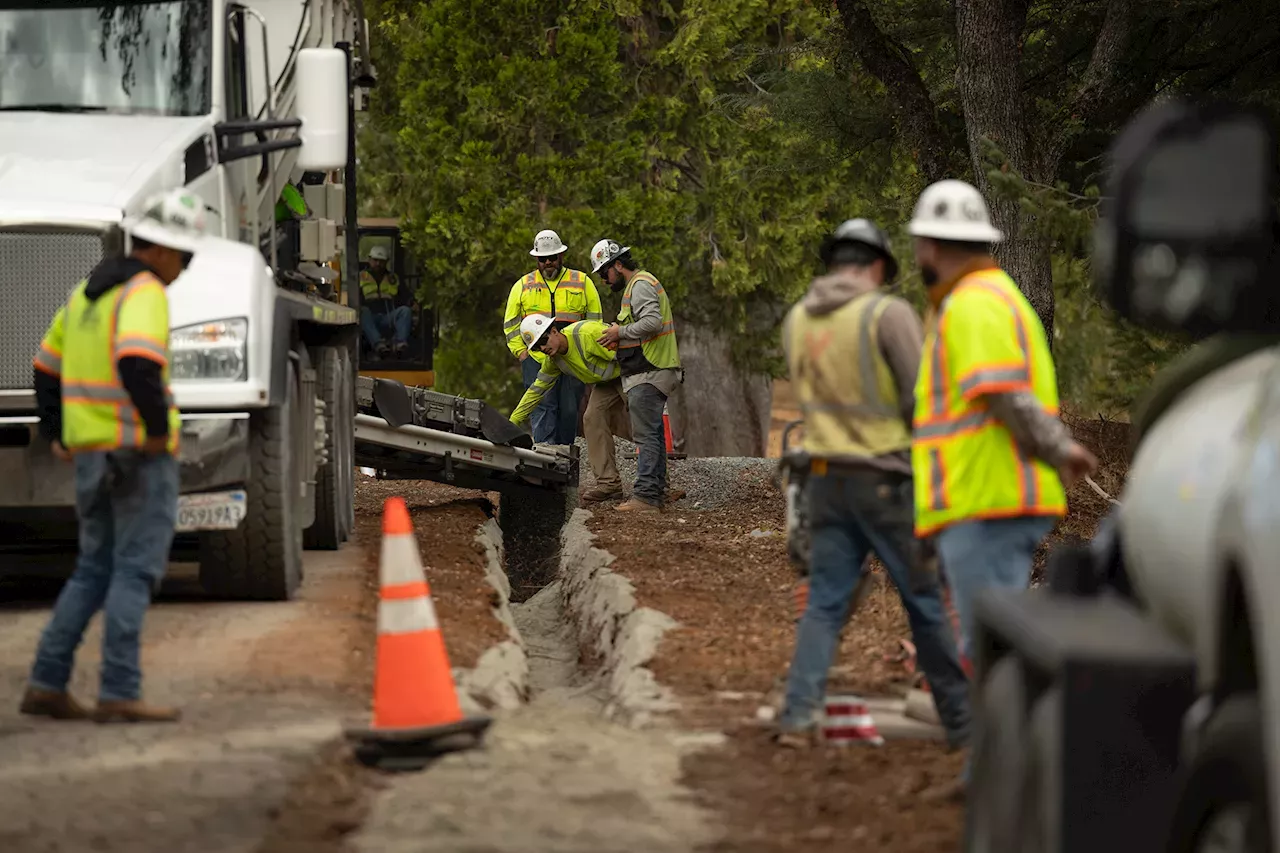Contractors with PG&E work in a trench to lay underground electric cables in Placer County on Oct. 17, 2024. Burying lines and other wildfire prevention projects have raised the price of electricity in California. Photo by Miguel Gutierrez Jr., CalMattersAfter utility equipment sparked tragic wildfires, PG&E, SCE and SDG&E received state approval to collect $27 billion from ratepayers. As California electric bills soar, questions have emerged about oversight and costs.
And the costs are projected to keep rising: The three companies — Pacific Gas & Electric, Southern California Edison and San Diego Gas & Electric — continue to seek billions more from customers for wildfire prevention spending. Rates are expected to continue outpacing inflationin the nation, outside of Hawaii. Other reasons include rooftop solar incentives, new transmission systems and upgrades for electric vehicles.
PG&E has buried 800 miles of power lines since 2021, with each mile costing between $3 and $4 million. Last year the company’s $3.7 billion plan to bury 1,230 miles of lines through 2026 was approved.. Utility equipment has caused less than 10% of the state’s fires but nearly half of its most destructive fires,PG&E plans to bury 10,000 miles of power lines in its highest-risk areas — work that is highly contentious because it is costly and slow.
Santa Ana winds spread the conflagration across parched terrain, with swaths of the nationally protected Santa Monica Mountains reduced to ash. Three people died. Moss’ home was gone, reduced to a hollowed out structure and charred rubble, along with about 100,000 acres ofThe 2021 Dixie Fire, which claimed one life and destroyed 1,311 structures, was the last catastrophic wildfire in California confirmed to be caused by utility equipment.The number of fires triggered by the companies’ equipment fluctuates from year to year, driven by the huge variability in California’s weather.
PG&E has installed more than 1,500 weather stations and 600 AI-enabled cameras to detect severe weather and ignitions, Singh said. Enhanced safety systems now cut power to lines within a tenth of a second. The utility also has cleared vegetation, ordered power shutoffs during high-risk times, insulated lines and buried some lines underground.
“We continue to double down, and do and do more tomorrow than we did yesterday,” said Brian D’Agostino, the utility’s vice president of wildfire and climate science. “We don’t take a single day without a fire for granted.”to thin forests and clear out the tinderbox of California’s dead and dying trees. That measure came too late to prevent the devastation.
First: A worker uses a rock saw trencher to dig a trench where PG&E electric cables will be buried. Last: Marking tape covers a layer of sand in the trench. Photos by Miguel Gutierrez Jr., CalMatters The sense of urgency following fires paved the way for the multi-billion surge in spending. The commission authorized PG&E, for instance, to spend $4.66 billion on wildfire costs from 2020 through 2022, but the companyPG&E employees and contractors stand next to a trench that was dug in Placer County so that electric cables can be buried to prevent wildfires. Burying lines costs PG&E ratepayers between $3 million and $4 million per mile. Photo by Miguel Gutierrez Jr.
Over time, these capital costs are growing due to factors like depreciation and the returns utilities are allowed to generate. This creates a compounding effect, meaning wildfire-related capital costs will take up an increasing share of what California customers are charged in the future.The burden of the rising bills is hitting many Californians hard.
